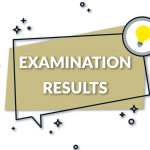English Tuition In Singapore
Annually, our tutors always help students of all abilities to achieve their academic goals
About 35% of our clients are MOE teachers and university/NIE lecturers. They trust what our tutors teach their own children.
The proven expertise of our carefully-chosen star tutors makes it possible for students' grades to improve between 10 to 30 marks in 2 semesters.
Our 5 co-founders are former senior teachers/HODs from Singapore's top primary/secondary schools and junior college.
We have over 33,000 active and experienced tuition teachers, and will show you tutor profiles within 6 hours.
English Tuition In Singapore | English Tutor In Singapore | English Tuition Secondary | Primary English Tuition In Singapore | English Tuition At Home
Since 2011, Professional Tutors Singapore has been the consistent leader in the education industry because of the quality of our tutors.
English Tuition In Singapore | English Tutor In Singapore | English Tuition Secondary | Primary English Tuition In Singapore | English Tuition At Home
Every year, the syllabus gets more difficult, and the exam requirements are increasingly more demanding.
Competition to get into the good classes and universities is very intense.
Stress levels are sometimes overwhelming, and parents are worried that their children will be left behind or excluded once they get erratic grades.
Professional Tutors has established a very strong reputation for our ability to attract the best and most successful tuition teachers in Singapore to be part of our team.
Outstanding, high-quality and credible tutors make it possible for our students to receive the reliable and effective academic help that they need, in order to perform much better.
Our 33,000 qualified tutors have 2 clear objectives:
1. Dependably and systematically prepare you for your next assessment/exam
2. Quickly and competently help you score maximum marks for each exam section
Take Control Of Your Grades Today
Primary School Tuition
Secondary School Tuition
Integrated Programme Tuition
International Baccalaureate Tuition
Junior College Tuition
Polytechnic Tuition
University Modules Tuition
English Tuition In Singapore | English Tutor In Singapore | English Tuition Secondary | Primary English Tuition In Singapore | English Tuition At Home
Hire Singapore's Most Successful Tuition Teachers
English Tuition In Singapore | English Tutor In Singapore | English Tuition Secondary | Primary English Tuition In Singapore | English Tuition At Home
Tutors: Please ensure that you have registered at: https://professional-tutors.com/tuition-jobs-better-assignments-fast/
We are not able to accept any tutor registrations through this Hire Tutors Form. Thank you.
English Tuition In Singapore | English Tutor In Singapore | English Tuition Secondary | Primary English Tuition In Singapore | English Tuition At Home
We are confident that you will succeed
English Tuition In Singapore | English Tutor In Singapore | English Tuition Secondary | Primary English Tuition In Singapore | English Tuition At Home








Singapore's largest team of qualified tutors
- Choose from MOE teachers, experienced tuition teachers with PhD/Master’s/Bachelor’s, or who are proficient university undergraduates
- Whether your dream is to start your own business, or to work for a prestigious MNC – the most important and useful immediate objective would be to receive the best academic guidance now, so that your grades can open many more important doors for you
- Annually, our tutors always help students of all abilities to achieve their academic goals
Satisfied clients every year since 2011
- Students benefit from our experience, quality tuition teachers, track record, and superior reputation
- Within 6 hours, our 20+ resourceful tuition coordinators (all of them have graduated from NUS, NTU and SMU) ensure that you can easily choose and hire the ideal tutor that fits your criteria
- 100% successful matches. Every time
- No agency fees. You pay only for lessons conducted
English Tuition In Singapore | English Tutor In Singapore | English Tuition Secondary | Primary English Tuition In Singapore | English Tuition At Home
Proven methods to score higher grades
- Our private tutors show you the important patterns and links in each chapter, and how to answer challenging application questions
- We teach you why and how to focus on the most crucial aspects of textbook content
- You will learn correct answering techniques so that your responses are specific and never off-point
- Practice worksheets/past exams with an acknowledged expert, so that your mistakes can be quickly and patiently corrected
Latest MOE syllabus, and exam marking scheme requirements
Our experienced and committed tutors will help you:
- Answer difficult exam questions
- Correctly prepare for your homework/projects
- Understand and revise every chapter
- Learn ahead of the syllabus
- Identify, avoid and prevent careless mistakes
English Tuition In Singapore | English Tutor In Singapore | English Tuition Secondary | Primary English Tuition In Singapore | English Tuition At Home
We have the education industry's most admired tutor database
- Tutors know that we are very careful and highly selective during the matching process
- We do not accept under-performing tutors in our team/database
- Professional Tutors therefore attracts tuition teachers who have already acquired and maintained an impressive track record of helping their students’ grades consistently and substantially improve
Our 5 co-founders collectively have over 70 years of experience in the field of education
- Also, our Advisory Panel comprises former MOE school principals, subject Heads of Department, and senior teachers
- This ensures that our tutors are firmly on track to teach the latest MOE syllabus, and are familiar with the exam requirements and marking schemes, as well as the requisite answering techniques
English Tuition In Singapore | English Tutor In Singapore | English Tuition Secondary | Primary English Tuition In Singapore | English Tuition At Home
Critical thinking is very important to obtaining strong overall analytical skills.
Effective critical thinkers are able to think clearly and rationally and understand the logical relations between data points and ideas.
Data and content form the core of the essence of what you need to learn for your exams.
You need to identify patterns in the data and content that are given in your text books, and also to correctly convey your analysis of the data to exam markers, in order to earn crucial exam marks.
In every exam/assessment that we take from P1 to post-doctoral level – and especially once we start working after graduation – we need to objectively analyze complex problems to form a judgment and the best response to make.
When you want to arrive at rational answers, critical thinking is a very important skill to master.
There are a few different types of logical thinking, including:
- Inference: Assuming an answer based on facts we already know
- Inductive reasoning: Observing a specific pattern, then making a general conclusion
- Deductive reasoning: Observing a general premise, then applying it to a specific situation
Are you an analytical thinker?
An analytical thinker is a person driven by curiosity to get to the bottom of things and is then able to solve a problem or find an answer.
They do not assume anything about the problem at hand.
Instead, they begin by questioning everything about the issue.
You can start to develop these good analytical thinking habits listed below (some, but not all of these qualities may be found in a person with an analytical nature):
- Search for information and evidence.
- Analytical thinkers will find and evaluate every bit of information they can accumulate on a particular subject or challenge before arriving at a decision
- Develop logical and systematic processes.
- Rarely will an analytical thinker be swayed by emotion.
- Usually, this individual will use linear thinking to arrive at a sound, sensible, well-thought-out conclusion.
- Logical thinkers tend to embrace structure and rules.
- Most analytical thinkers like to work in a well-organized way.
- When you are organized, you will be thorough in your work and never miss out on important information that needs to be reviewed and considered.
- For example, if you develop a keen interest in an area, you’ll make sure you learn as much as possible about that field and become an expert.
- This is the kind of professionalism and attention to detail that businesses (and your exam markers) are looking out for.
- Start having routines in your daily life.
- Analytical thinkers enjoy routines and have steady, established habits.
- They prefer to know what and when something is going to happen. Daily life is often based around routines.
- They have an innate ability to concentrate, which means they usually like to work independently or in small teams.
- Develop sharp memory skills.
- It is common for an analytical thinker to thrive on learning new information – and once learned, that information is never forgotten.
- Analytical thinkers have exceptional memories, although they can opt to forget information that they do not consider critical to solving their current problem.
- Analytical thinkers can also be curious and observant.
- Get in the habit of asking “how?” and “why?”.
- They tend to be modest: it’s difficult to be curious and observant when one is arrogant and thinks that he/she already knows everything.
- You can consciously observe and analyze your surroundings.
- When you are highly perceptive, your mind is geared towards taking a bird’s eye view of things which enables you to consider the whole picture.
- This also means that you’ll be able to visualize how parts of a project fit together.
- You’ll be in a better position to foresee and predict how minor changes and adjustments can affect the outcome and make astute decisions.
- Get in the habit of forcing yourself to analyze seemingly obvious truths about the world.
- When you are always prepared and can handle risk well, it becomes highly unlikely that you will be shocked when faced with problematic situations.
- Your preparedness and risk management skills will help you ensure that you have predicted any potential threats to being able to answer difficult exam questions, and are already prepared with a plan of action.
- Analytical thinkers are known for spotting problems from far away, and being ready to meet challenges head-on.
If you can identify with the qualities above and prefer strategy and creativity over socializing and networking, chances are you’re an analytical thinker.
Whether you struggle with analytical thinking or seem to have natural analytical abilities, you can always improve your skills.
Visualization, creativity, and having a growth mindset – the ability to embrace new technologies and upgrade skills – are key to the analytical thinker’s success jobs that pay high salaries.
Analytical skills are used when detecting patterns and trends, brainstorming new ideas, observing data, collecting data, interpreting data, integrating new information, synthesizing information, and making decisions on what solutions to implement in a productive manner.
Analytical skills refer to a person’s ability to assess relevant information and facts, identify and define complex problems, investigate and extract crucial information from data, and find the best workable solutions to these problems.
According to LinkedIn, they are one of the top 10 most in-demand soft skills that employers always look for.
Analytical skills are highly transferable, making the analytical thinker an ideal fit for a variety of career fields.
The analytical thinker’s breadth and versatility of skills are the primary reason why employers look for this coveted trait.
Analytical and critical thinking skills allow employees to adapt and respond to new obstacles.
Company success often depends on employees who can efficiently and effectively analyze the vast amounts of data and information in the digital age.
Logical decision makers use fact-based, hard evidence to support their decisions and plans.
They arrive at their decisions after factoring every aspect of a situation and utilizing the best means of achieving the most optimal solution.
This results in successful outcomes because of the quality of decisions that they are able to make.
Companies that employ skilled analytical thinkers are better able to adapt and respond to new market conditions as well.
Accordingly, analytical skills show up frequently as a required quality in job descriptions.
For example, a sales job description may list qualitative analysis or predictive analysis as requirements.
Developing strong analytical skills is therefore vital to anyone who wants to succeed in their school/national exams and then when they start their careers.
You have to write analytically when you answer exam questions.
Analytical essays (even if they are only a few sentences long) provide a way to share your insights that provide substantive analysis of a topic.
A good analytical essay can explain and contextualize basic information for the exam marker.
Analytical responses serve two purposes: one for the reader and one for the writer.
Your exam marker wants to know how you have grown as a writer and thinker.
Your ability to write analytically will convince the exam marker that you have a strong grasp over the content that the question is testing you on.
What sets an analytical essay apart from a descriptive answer is the author’s point of view.
Analytical essays present an argument supported by evidence, whereas descriptive essays tend to be book summaries, film synopses, descriptive articles, and informative pamphlets that do not include analysis or opinion.
Similar to a good analytical essay, a strong descriptive essay will highlight its main points, organize given topics into body paragraphs, and use logical transitions.
Ultimately, however, descriptive essays summarize facts, while analytical essays delve into interpretation.
The best analytical essays offer a clear point of view, are well organized around a main idea, address opposing arguments, and are comprehensively supported by primary and secondary sources.
- You should start by choosing a point of view.
- No matter what you choose as your central point of view, you must be able to anchor your entire analytical essay around a singular thesis statement/point of view.
- Your introductory paragraph has to state your point of view.
- An excellent introduction will grasp your reader’s interest. It is therefore important that you take extra care in your opening paragraph.
- Good ways to start your essay would with a hook such as a bold statement.
- You should then provide a broad outline that addresses questions that the exam questions requires you to tackle.
- A good introduction concludes with a thesis statement that serves as the compass (ie “GPS”) for the entire essay.
- You then need to carefully organize the body of your essay.
- After your introductory paragraph, divide your essay into body paragraphs that dig deep into specific topics.
- All body paragraphs should serve the main goal of supporting your thesis statement, either by providing background information, delving into details, or providing contrasting viewpoints that each substantiate themselves.
- The number of body paragraphs will vary depending on the scope and length of your essay that the exam questions require from you.
- The structure of your essay is just as important as the subject of your essay, so do take the time to strategically plan each body paragraph.
- Your topic sentences must be clearly crafted.
- Each main body paragraph should begin with a topic sentence that both introduces the topic of the that specific paragraph, and then ties it to your main thesis.
- Populate your essay with evidence that is directly related to the exam question. Do not ramble or go off-point.
- The main body of the essay should be filled with a mixture of substance and analysis.
- You can convince your exam marker to give you higher marks only when you are able to provide solid evidence to back up your statements and point of view.
- Therefore, you must support the main points of your analysis with evidence taken from your textbooks or the research that you had previously conducted on this subject.
- You can make an argument stronger by acknowledging another point of view.
- Even if you do not agree with a critical perspective, you can still use a body paragraph to describe that point of view.
- You can then refute that argument with additional evidence and reasoning, strengthening your thesis/position on that issue.
- The summary is also very important.
- Wrap up your analytical essay with a concluding paragraph that recaps your argument.
- The concluding paragraph is not the place to introduce new evidence.
- Rather, it is the ribbon that you wrap around your entire essay, reminding your reader of your most important points and leaving them with some final convincing words for consideration of your point of view.
Perseverance means continuously working on a task despite having obstacles.
It means being hardworking and finishing what is started, even when barriers and problems arise.
Perseverance is an essential leadership skill.
It is more than just not giving up.
When you’re in a leadership role, perseverance is more of a problem-solving process that includes encountering a challenge, understanding why the challenge exists, finding a way to overcome the challenge and, above all, learning from the entire experience.
It is often what separates those that achieve success, and prevents disappointment for themselves and their team.
The satisfaction received from completing tasks and projects is very important to those who are able and want to persevere.
It means the willpower to work hard regardless of any obstacles, to be firm on achieving, and remaining consistent.
Sometimes we are unable to complete a task or get what we want when things don’t go our way.
However, by persevering, we can have better prospects of being successful.
Everyone who takes an idea and makes it into something valuable does it through hard work.
Tied very closely to hard work is perseverance, continuing forward without regard to discouragement, opposition, hurdles, or memories of previous failure.
Ultimately, perseverance is about being confident in your abilities and trusting that you’ll find a way through, if you persist.
Don’t be afraid to fail.
Perseverance comes from failing and getting back up.
Without failure, we cannot become resilient.
Therefore, we have to think of failure as a lesson, rather than a setback.
We can learn so much from failure that changing our attitude toward it can have amazing implications for our lives.
When we aim to be 1% better every day, we develop a growth mindset that is a great way to increase perseverance and motivation.
These are skills like any other types of talents that you want to develop, and try to improve upon them just 1% every day.
Keeping this concept in mind throughout the day is an excellent way to motivate ourselves.
Have you heard of the 40% Rule?
This Rule means that if you manage to complete 40% of the task, your likelihood of quitting drops dramatically.
So, work toward completing 40% of the task. Then the rest of the 60% is not that difficult/intimidating to complete.
Keep your goals in mind.
When we make mistakes or fail, many people will be tempted to give up altogether.
If we want to persevere, we need to keep our goals in mind at all times.
Start by writing down your short and long-term goals and place them somewhere that’s easy to access.
Ask yourself why you have chosen and then embarked on a certain goal.
Reflecting on that reminds us that the journey is worth our time.
Then, whenever there’s any discouraging event or comment, take a look at that list to inspire you and keep you moving forward.
Success can be a long and tough journey.
We should give ourselves rewards or encouragement along the way to the major goals.
The rewards can be anything from having a nice lunch, extra hours spent at the park, or a weekend break.
The rewards will keep reminding you of the progress you have made, and will provide continued motivation to persevere through difficult times.
The people who become successful are not the ones who are the most talented.
It’s the ones with the most endurance.
Whether the skill of perseverance comes easily to you or not, the best part is that there are so many ways for us to develop our mental resilience, which then helps our grades get better.
Self-motivation is the force that keeps pushing us to go on – it’s our internal drive to achieve, produce, develop, and keep moving forward.
When you think you’re ready to quit something, or you just don’t know how to start, your self-motivation is what pushes you to go on.
By setting a goal – anything from scoring 10 more marks for Maths, avoiding careless mistakes, or paying more attention in class – you are taking a big step toward improving your life.
However, following through to achieve what we’ve set out to accomplish can be challenging, especially on those days when our energy levels are low and we just don’t feel like putting in the work.
We all lose motivation from time to time.
When you’re feeling unmotivated, try one of these science-backed strategies to get yourself back on track toward your goal.
- Put your goal on the calendar and give yourself target dates. Whatever it is you’re aiming to accomplish, put the timelines on the calendar.
- If your goal lacks this structure, you can include it in your calendar by deciding on a date by which you could realistically achieve your goal.
- Having a target date not only helps you stay motivated, it also helps you track your progress – you always know how much further you have to go and how much you have already achieved.
- You can also draw a progress bar on a piece of paper that you can stick in front of your study area.
- Look at it regularly and fill it in as you get closer to your goal.
- This can have a big impact on your performance and determination to succeed.
- Set small goals that lead toward the main goal, in order to build momentum.
- Getting started is often the hardest part on low-motivation days, and starting is much easier when the task is small. Begin with five minutes of study first, then work your way up to an hour a day etc.
- Track your progress. Not every day will go exactly as planned, and that’s okay.
- We can’t predict everything that could happen, but we can predict some obstacles that are likely to happen from time to time based on our unique circumstances.
- Then when that obstacle pops up, instead of losing motivation and feeling deflated, you have a plan in place to keep the momentum going.
- Practice gratitude for every tiny step that you are making toward your small goals and eventual big goals.
- Research shows that frequent small successes can build a momentum that can in turn drive long-term success, especially early in the process.
- Whatever your big goal may be, start by breaking it down into smaller chunks, and it will be easier to achieve most or all of them.
- Reward yourself for the little wins as well as the big ones. Rewards can improve motivation and performance.
- Rewarding yourself for reaching small milestones and completing big goals could boost your interest and enjoyment in the work you’re doing.
- Spend a few minutes making your own reward list so that you’re ready to celebrate your wins, big and small.
- Improve your mood and mental health.
- A good mood has been linked to increased productivity, and improvement in both quality and quantity of our work.
- This doesn’t mean that you have to be positive all the time – being chirpy every minute of every day is not realistic.
- But if you’re feeling sluggish about working toward your goal, a quick mood lift could be enough to get you started.
- Having a change of your environment can help you approach your task with a fresh perspective (and a new sense of motivation).
- This is called the novelty effect – a short-term boost that comes from altering your environment or routine.
- Spend some time in nature (or at least get some sunlight while taking a nice walk around the neighbourhood).
- Try a different exercise routine.
- Watch funny videos on TikTok or YouTube.
Good ways to further motivate yourself would be to ask yourself:
- Why is this goal important to you?
- Why is that reason important to you?
Keep thinking about these until you get to your ultimate “why” – which is the core value that’s driving your goal.
What would it feel like to achieve your goal?
You know that it will feel great, and that promise of your happiness and sense of achievement will keep you focused on wanting to continue to do well.
Take control of your English grades today
33,000 experienced private tutors
MOE teachers, tutors with proven track records,
PhD/Master's/Post-Doctoral tutors,
Graduated/Undergraduate dependable tutors
Mr HS has 6 years of English tuition experience. He has a Bachelor’s in English Creative Writing from NTU (Honours). His private tuition students attended Montfort Junior School, Maha Bodhi School, St Margaret’s Primary School, Beacon Primary School, Townsville Primary School, and CHIJ St Nicholas Girls’ (Primary).
Ms DW has 10 years of English tuition experience. She has a Bachelor’s from NTU and taught at tuition centres for 4 years. Ms DW’s home tuition students attended Yangzheng Primary School, St Gabriel’s Primary School, Dazhong Primary School, Deyi Secondary School, Geylang Methodist School (Secondary), and Maris Stella High School.
Ms RC has 13 years of English tuition experience. She is NIE-trained and taught at MOE schools for 5 years. Ms RC has a Bachelor’s in English from NTU. Her private tuition students attended CHIJ (Katong) Primary School, Bukit Panjang Primary School, Henry Park Primary School, Palm View Primary School, Tampines Primary School, and Changkat Primary School.
Ms PKT has 7 years of English tuition experience. She has a Master’s from NUS, majoring in English. Her Bachelor’s (2nd Upper Class Honours) from NUS was in English and English Literature. Ms PKT’s private tuition students attended Fengshan Primary School, Methodist Girls’ School (Primary), Stamford Primary School, CHIJ St Theresa’s Convent, Beatty Secondary School, and Catholic High School.
Mr MO has 12 years of English tuition experience. He has a PhD in English from the Massachusetts Institute of Technology (MIT Linguistics). Mr MO’s Bachelor’s in English (First Class Honours) was from NUS. Mr MO’s private tuition students attended NUS High School of Mathematics and Science, Raffles Girls’ School (Secondary), St. Andrew’s Secondary School, Victoria School (Integrated Programme), Dunman High School, and Nanyang Girls’ High School.
Mr FYE has 8 years of English tuition experience. He is NIE-trained and taught in MOE schools for 9 years. Mr FYE’s Bachelor’s was in English from NTU (Honours). His home tuition students attended Dunman High School, Fuchun Secondary School, Methodist Girls’ School (Secondary), Hua Yi Secondary School, National Junior College (Integrated Programme), and Marsiling Secondary School.
Hire the best English experts to help you succeed
A committed and skillful English home tutor can make an important difference in how you understand the syllabus, and therefore achieve gains of 10 to 30 marks within 2 semesters
Mr WBC has 5 years of English tuition experience. He has a PhD in Linguistics from Stanford University. Mr WBC has a Bachelor’s in English from NUS (First Class Honours). His home tuition students attended Catholic High School, Nanyang Girls’ High School, Raffles Institution, Singapore Chinese Girls’ School, Swiss Cottage Secondary School, and St. Anthony’s Canossian Secondary School.
Ms RS has 6 years of English tuition experience. She is NIE-trained and taught at MOE schools for 7 years. She has a Bachelor’s from NUS, majoring in English (Honours). Her private tuition students attended Pasir Ris Secondary School, National Junior College (Integrated Programme), Kranji Secondary School, CHIJ St Nicholas Girls’ School, Bukit Merah Secondary School, and Anglo-Chinese School (Independent).
Mr IM has 3 years of English tuition experience. He has a Master’s in English from the University of Edinburgh. His Bachelor’s in English was from NTU (Honours). Mr IM was a contract teacher at MOE schools for 3 years and taught at 2 tuition centres. Mr TK’s private tuition students attended Huamin Primary School, Maris Stella High (Primary), Rosyth School, Hua Yi Secondary School, Kuo Chuan Presbyterian Secondary School, and Raffles Girls’ School (Secondary).
Ms CWS has 12 years of English tuition experience. She has a Bachelor’s in English from NUS. Her private tuition students attended CHIJ Primary (Toa Payoh), Innova Primary School, Ahmad Ibrahim Primary School, Peirce Secondary School, River Valley High School, and Pei Hwa Secondary School.
Ms HGB has 7 years of English tuition experience. She has a Bachelor’s in English and English Literature (2nd Upper Class Honours) from NUS. Ms HGB wrote the curriculum for PSLE English and primary school English for a large group of tuition centres. Her private tuition students attended Fern Green Primary School, Waterway Primary School, St Gabriel’s Primary School, Cedar Primary School, St Andrew’s Junior School, and Si Ling Primary School.
Mr RT has 10 years of English tuition experience. He has a Master’s in English Literature and Art History from NTU, and a Bachelor’s in English (Honours) from NUS. Mr RT was a contract MOE teacher for 4 years. His private tuition students attended Yishun Primary School, Woodlands Ring Primary School, Lianhua Primary School, Greendale Secondary School, Crescent Girls’ School, and Bukit View Secondary School.
Ms YT has 6 years of English tuition experience. Her Bachelor’s in English was from NUS. Ms YT’s home tuition students attended Raffles Girls’ Primary School, Anglo-Chinese School (Junior), West Spring Primary School, Anglican High School, Balestier Hill Secondary School, and Hwa Chong Institution (Integrated Programme).
Ms GM has 10 years of English tuition experience. She has a Bachelor’s from NTU, majoring in English. Her private tuition students attended Alexandra Primary School, Naval Base Primary School, St Andrew’s Junior School, Loyang Secondary School, Temasek Junior College (Integrated Programme), and Tanjong Katong Girls’ School.
Ms HS has 11 years of English tuition experience. She is NIE-trained and taught at MOE schools for 9 years. Ms HS has a Bachelor’s in English from NUS. Her private tuition students attended White Sands Primary School, Casuarina Primary School, Farrer Park Primary School, Maha Bodhi School, Canossa Convent Primary School, and St Margaret’s Primary School.
Ms DC has 6 years of English tuition experience. She has a Bachelor’s from NTU, majoring in English. Her home tuition students attended Blangah Rise Primary School, Ai Tong School, Peiying Primary School, Bedok South Secondary School, Methodist Girls’ School (Secondary), and New Town Secondary School.
Ms EL has 13 years of English tuition experience. She has a Master’s in English and a Bachelor’s in English (Honours) from NUS. Ms EL was the Head of English at a top group of tuition centres for 4 years. Her private tuition students attended Yumin Primary School, Cedar Primary School, Angsana Primary School, Jurongville Secondary School, Hai Seng Secondary School, and National Junior College (Integrated Programme).
Mr MG has 7 years of English tuition experience. He has a Bachelor’s in English from NUS. Mr MG was an MOE contract teacher for 4 years. His private tuition students attended Sengkang Green Primary School, North Spring Primary School, Nan Chiau Primary School, Greenridge Secondary School, Maris Stella High School, Christ Church Secondary School, and Anglo-Chinese School (Independent).
Mr FH has 10 years of English tuition experience. He has a Master’s and Bachelor’s (2nd Upper Class Honours) in English from NTU. Mr FH taught at a leading group of tuition centres for 6 years and was the Head of English at these tuition centres. His private tuition students attended Endeavour Primary School, Northoaks Primary School, Rosyth School, Zhonghua Primary School, Loyang Secondary School, National Junior College (Integrated Programme), and Pasir Ris Secondary School.
Ms YMG has 5 years of English tuition experience. Ms YAM is NIE-trained and taught at MOE schools for 6 years. She has a Bachelor’s in English from NTU. Her private tuition students attended National Junior College (Integrated Programme), Northland Secondary School, Raffles Girls’ School (Secondary), Anderson Secondary School, Catholic High School, and Clementi Town Secondary School.
Ms EL has 14 years of English tuition experience. She has a Bachelor’s in English from NUS (Honours). Ms EL was an MOE contract teacher for 2 years. Her home tuition students attended Punggol View Primary School, White Sands Primary School, Tao Nan School, Guangyang Secondary School, Juying Secondary School, and Montfort Secondary School.
Mr SC has 12 years of English tuition experience. He has a Bachelor’s in English from NUS. His home tuition students attended St Hilda’s Primary School, Maris Stella High (Primary), Woodgrove Primary School, Methodist Girls’ School (Secondary), Holy Innocents’ High School, and Ngee Ann Secondary School.
Mr GE has 4 years of English tuition experience. He has a PhD in Comparative Literature from Cornell University. Mr GE’s Bachelor’s in English was from NTU (First Class Honours). Mr BW taught at a top MOE school for 4 years. His private tuition students attended Nanyang Girls’ High School, Paya Lebar Methodist Girls’ School (Secondary), Temasek Junior College (Integrated Programme), Victoria School (Integrated Programme), St. Joseph’s Institution, and Tanjong Katong Girls’ School.
Ms KMR has 10 years of English tuition experience. She has a Bachelor’s in English from NTU (Honours). Ms KMR taught at tuition centres for 7 years. Her private tuition students attended Pioneer Primary School, Corporation Primary School, Pioneer Primary School, Anglo-Chinese School (Barker Road), Cedar Girls’ Secondary School, and Nan Hua High School.
Ms MA has 5 years of English tuition experience. She has a Bachelor’s in English from NUS. Ms MA was a contract teacher at an MOE school for 2 years. Her private tuition students attended Chua Chu Kang Primary School, St Margaret’s Primary School, South View Primary School, Chong Boon Secondary School, Naval Base Secondary School, and Peicai Secondary School.
Mr TYH has 8 years of English tuition experience. He is NIE-trained and taught at MOE schools for 4 years. Mr TYH has a Bachelor’s in English from NUS (Honours). His home tuition students attended Ngee Ann Primary School, Tanjong Katong Primary School, Meridian Primary School, Dunman High School, Geylang Methodist School (Secondary), and Kent Ridge Secondary School.
Ms SG has 3 years of English tuition experience. She has a Bachelor’s from NTU, majoring in English (First Class Honours). Her private tuition students attended St Andrew’s Junior School, Marymount Convent School, St Hilda’s Primary School, St Gabriel’s Primary School, Cedar Girls’ Secondary School, and Fairfield Methodist School (Secondary).
Mr SWS has 12 years of English tuition experience. He has a Bachelor’s from NUS, majoring in English language and English Literature. His private tuition students attended Maris Stella High School, Nan Chiau High School, Paya Lebar Methodist Girls’ School (Secondary), Raffles Girls’ School (Secondary), and Seng Kang Secondary School.
Ms MH has 5 years of English tuition experience. She has a Master’s in English from NUS and a Bachelor’s in English from NTU (Honours). Ms MH was a relief teacher at an MOE school for 3 years. She taught at a tuition centre for 2 years. Ms MH’s private tuition students attended Bendemeer Primary School, Anglo-Chinese School (Primary), Casuarina Primary School, Fajar Secondary School, Crescent Girls’ School, and Gan Eng Seng Secondary School.
Ms RY has 3 years of English tuition experience. She has a Bachelor’s in English from NUS. She taught at a tuition centre for 1 year. Ms RY’s private tuition students attended CHIJ (Kellock), Princess Elizabeth Primary School, Alexandra Primary School, Xishan Primary School, Nan Hua High School, and Outram Secondary School.
Mr HTB has 6 years of English tuition experience. He is NIE-trained and taught at MOE schools for 8 years. Mr HTB has a Bachelor’s from NTU, majoring in English. His private tuition students attended Fengshan Primary School, St Stephen’s School, CHIJ (Katong) Primary School, Henry Park Primary School, Chua Chu Kang Primary School, and Pei Tong Primary School.
Mr SN has 8 years of English tuition experience. He has a Bachelor’s in English from NUS (2nd Upper Class Honours). His private tuition students attended Yishun Secondary School, Zhonghua Secondary School, Temasek Junior College (Integrated Programme), Singapore Chinese Girls’ School, St. Andrew’s Secondary School, and Regent Secondary School.
Mr GC has 10 years of English tuition experience. He has a Bachelor’s in English from NTU. Mr GC taught at tuition centres for 7 years. His private tuition students attended Elias Park Primary School, Hong Wen School, Maha Bodhi School, Crescent Girls’ School, Guangyang Secondary School, and West Spring Secondary School.
Ms PW has 6 years of English tuition experience. She has a PhD in English and English Literature from the University of Toronto (Canada). Ms PW has a Bachelor’s in English from NUS (First Class Honours). She was a contract teacher at MOE schools for 5 years. Ms PW’s home tuition students attended St. Anthony’s Canossian Secondary School, Tanjong Katong Girls’ School, Victoria School (Integrated Programme), National Junior College (Integrated Programme), Methodist Girls’ School (Secondary), and CHIJ Secondary (Toa Payoh).
Ms GH has 14 years of English tuition experience. She has a Master’s in Linguistics from NUS, and a Bachelor’s in English and English Literature from NUS (2nd Upper Class Honours). She taught at a leading group of tuition centres for 4 years. Her private tuition students attended Tao Nan School, Nanyang Primary School, Marymount Convent School, CHIJ St Nicholas Girls’ School Integrated Programme, Anglo-Chinese School (Barker Road), and Raffles Institution (Secondary) Integrated Programme.
Ms LFB has 10 years of English tuition experience. She has a Bachelor’s in English from NUS. Her private tuition students attended Montfort Secondary School, Pasir Ris Secondary School, Queenstown Secondary School, Marsiling Secondary School, Maris Stella High School, and St. Hilda’s Secondary School.
Ms THF has 10 years of English tuition experience. She has a Bachelor’s from NUS, majoring in English. Her home tuition students attended Red Swastika School, Telok Kurau Primary School, Nanyang Primary School, Compassvale Secondary School, Ngee Ann Secondary School, and Paya Lebar Methodist Girls’ School (Secondary).
Mr DW has 6 years of English tuition experience. He has a Bachelor’s in English from NTU. He taught at a tuition centre for 1 year. Mr DF’s private tuition students attended Nan Hua Primary School, De La Salle School, Canossa Convent Primary School, Dunearn Secondary School, CHIJ St Theresa’s Convent, and Fuchun Secondary School.
Ms JC has 12 years of English tuition experience. She taught at MOE schools for 9 years and is NIE-trained. Ms JC has a Bachelor’s in English from NUS (Honours). Her home tuition students attended St Joseph’s Institution Junior, Tao Nan School, Paya Lebar Methodist Girls’ School (Primary), Methodist Girls’ School (Primary), CHIJ Our Lady Queen of Peace Primary, and Anglo-Chinese School (Primary).
Ms FC has 6 years of English tuition experience. She has a Bachelor’s from NUS, majoring in English. Her private tuition students attended Park View Primary School, Singapore Chinese Girls’ School (Primary), Frontier Primary School, CHIJ (Our Lady of the Nativity), Kong Hwa School, and Yew Tee Primary School.
Ms GW has 13 years of English tuition experience. She is NIE-trained and taught at MOE schools for 7 years. Ms GW has a Bachelor’s from NUS, majoring in English (Honours). Her private tuition students attended Townsville Primary School, Jing Shan Primary School, CHIJ St Nicholas Girls’ (Primary), Xinmin Primary School, Yio Chu Kang Primary School, and Fuhua Primary School.
Mr RN has 9 years of English tuition experience. He has a Bachelor’s from NUS, majoring in English. He taught at tuition centres for 3 years. Mr RN’s home tuition students attended Chongzheng Primary School, Radin Mas Primary School, St Anthony’s Primary School, Commonwealth Secondary School, Edgefield Secondary School, and Hai Seng Secondary.
Ms OS has 7 years of English tuition experience. She has a Bachelor’s from NTU, majoring in English (Honours). Ms OS’s home tuition students attended Red Swastika School, Montfort Junior School, Maha Bodhi School, Anglican High School, CHIJ St Joseph’s Convent, and Nan Chiau High School.
Ms KLT has 15 years of English tuition experience. She has a Master’s in Linguistics from NUS, and a Bachelor’s in English from NUS (2nd Upper Class Honours). Ms KLT’s home tuition students attended Singapore Chinese Girls’ Secondary School Integrated Programme, St Patrick’s School, Raffles Girls’ School (Secondary), River Valley High School Integrated Programme, and Victoria School Integrated Programme.
Ms OS has 7 years of English tuition experience. She has a Bachelor’s from NTU, majoring in English. Ms OS’s home tuition students attended Red Swastika School, Montfort Junior School, Maha Bodhi School, Anglican High School, CHIJ St Joseph’s Convent, and Nan Chiau High School.
Our tutors always help students of all abilities to achieve their academic goals
Your English tuition teacher will clearly explain to you:
- Write to suit purpose, audience and context in a way that is clear and effective
- Use appropriate register and tone in a variety of texts
- Generate and select relevant ideas, organising and expressing them in a coherent and cohesive manner
- Use correct grammar, spelling and punctuation
- Use a variety of vocabulary appropriately, with clarity and precision
- Identify key messages, main ideas and details in a variety of spoken texts
- Demonstrate understanding of the content of a variety of spoken texts at the literal and inferential levels
- Infer and draw conclusions by listening critically
- Read with good pronunciation, clear articulation and appropriate intonation in order to convey the information, ideas and feelings in a passage
- Produce a well-paced, fluent reading of a passage
- Express their personal opinions, ideas and experiences clearly and effectively in conversing with the examiner
- Speak fluently and with grammatical accuracy, using a range of appropriate vocabulary and structures
- Write a short functional piece (e.g. letter, email, report) to suit the purpose, audience and context of a given situation
- Continuous Writing – Candidates will be required to write a composition of at least 150 words in continuous prose on a given topic. Three pictures will be provided on the topic offering different angles of interpretation
- Ability to use language correctly and to comprehend visual and texts
- The texts may be in the form of news items, announcements, advertisements, instructions, explanations, conversations, speeches and stories via graphic representations
- Reading Aloud – candidates are assessed on their ability to pronounce and articulate words clearly, as well as their ability to read fluently with appropriate expression and rhythm
- Stimulus-based Conversation – candidates are assessed on their ability to give a personal response to a visual stimulus and engage in a conversation on a relevant topic
- MCQ: Multiple-choice questions
- OE: Open-ended questions
- Listen, read and view critically and with accuracy, understanding and appreciation, a wide range of literary and informational/functional texts from print and non-print sources
- Speak, write and represent in internationally acceptable English (Standard English) that is grammatical, fluent, mutually intelligible and appropriate for different purposes, audiences, contexts and cultures
- Understand and use grammar and vocabulary accurately and appropriately and use language to communicate meaning and achieve impact
- Speak and write in internationally acceptable English
- Respond, in speech or writing, to a variety of written, spoken and visual texts
- Speak, read aloud and write to suit purpose, audience and context
- Speak and write clearly, effectively, relevantly and coherently
- Plan, organise and show development of ideas
- Use varied sentence structures and a wide and appropriate vocabulary with clarity and precision
- Speak and write using appropriate register and tone
- Use correct grammar, punctuation and spelling
- Show understanding of a variety of written, spoken and visual texts at the literal, inferential and evaluative levels
- Show understanding of how use of language achieves purpose and impact
- Identify main ideas and details in written, spoken and visual texts
- Synthesise, summarise and organise information
- Read aloud a given text with accurate pronunciation and clear articulation
- Read aloud a given text fluently with appropriate variations in voice qualities, i.e. pace, volume, tone and stress
- Continuous prose of not more than 250 words: candidates identify and then edit grammatical errors by writing the corrections in the spaces provided
- Situational Writing: Candidates write a text of 250–350 words based on a given situation which will involve viewing a visual text
- Candidates are required to write the text (e.g. an email, a letter, a report or a speech) to suit the purpose, audience and context
- Continuous Writing: Candidates choose one out of four topics to write a text of 350–500 words in continuous prose
- The topics may cover different types of texts, e.g. narrative or exposition
- Based on the visual text, candidates are required to answer a variety of questions testing comprehension, and on the use of visuals as well as the use of language for impact
- Narrative: candidates are to answer questions testing comprehension, vocabulary in context and the use of language for impact
- Non-narrative in nature: candidates are required to answer questions testing comprehension, vocabulary in context and the use of language for impact
- Candidates are also required to write a summary of about 80 words (excluding the introductory words that will be provided)
- Candidates respond to a variety of listening tasks that will assess a range of listening skills
- A variety of audio texts, e.g. narrative, recount, exposition, and information report, may come with visuals where appropriate
- A variety of question types, e.g. multiple choice, matching, fill-in-theblanks, true/false/not stated, and filling in a graphic organiser, may be set.
- Candidates listen to an informational text and complete a simple note-taking task
- Candidates read aloud a short text presented on a computer screen bearing in mind the purpose, audience and context
- The text may be a short narrative, news report, speech, or an announcement, or a mixture of types and forms
- Candidates are assessed on their ability to accurately pronounce and clearly articulate the words in the text, and read fluently and expressively, showing an awareness of purpose, audience and context
- Candidates view a visual stimulus in the form of a video clip
English Tuition In Singapore | English Tutor In Singapore | English Tuition Secondary | Primary English Tuition In Singapore | English Tuition At Home
Hire the correct tuition teacher so that you are battle-ready when you read the English exam questions
English Tuition In Singapore | English Tutor In Singapore | English Tuition Secondary | Primary English Tuition In Singapore | English Tuition At Home
Tutors Singapore | Tuition At Home | Singapore Tutor | Tuition Agency In Singapore | Tuition Agent
Tuition Assignments - Choose from over 100+ new daily private tutor jobs
English Tuition In Singapore | English Tutor In Singapore | English Tuition Secondary | Primary English Tuition In Singapore | English Tuition At Home
Register As A Tutor - Good Rates, Many New Assignments Daily
English Tuition In Singapore | English Tutor In Singapore | English Tuition Secondary | Primary English Tuition In Singapore | English Tuition At Home
English Tuition In Singapore | English Tutor In Singapore | English Tuition Secondary | Primary English Tuition In Singapore | English Tuition At Home
Parents: Please ensure that you have registered at: https://professional-tutors.com/hire-home-tuition-teachers-improve-top/
We are not able to accept any parent registrations through this Tutor Registration Form. Thank you.



